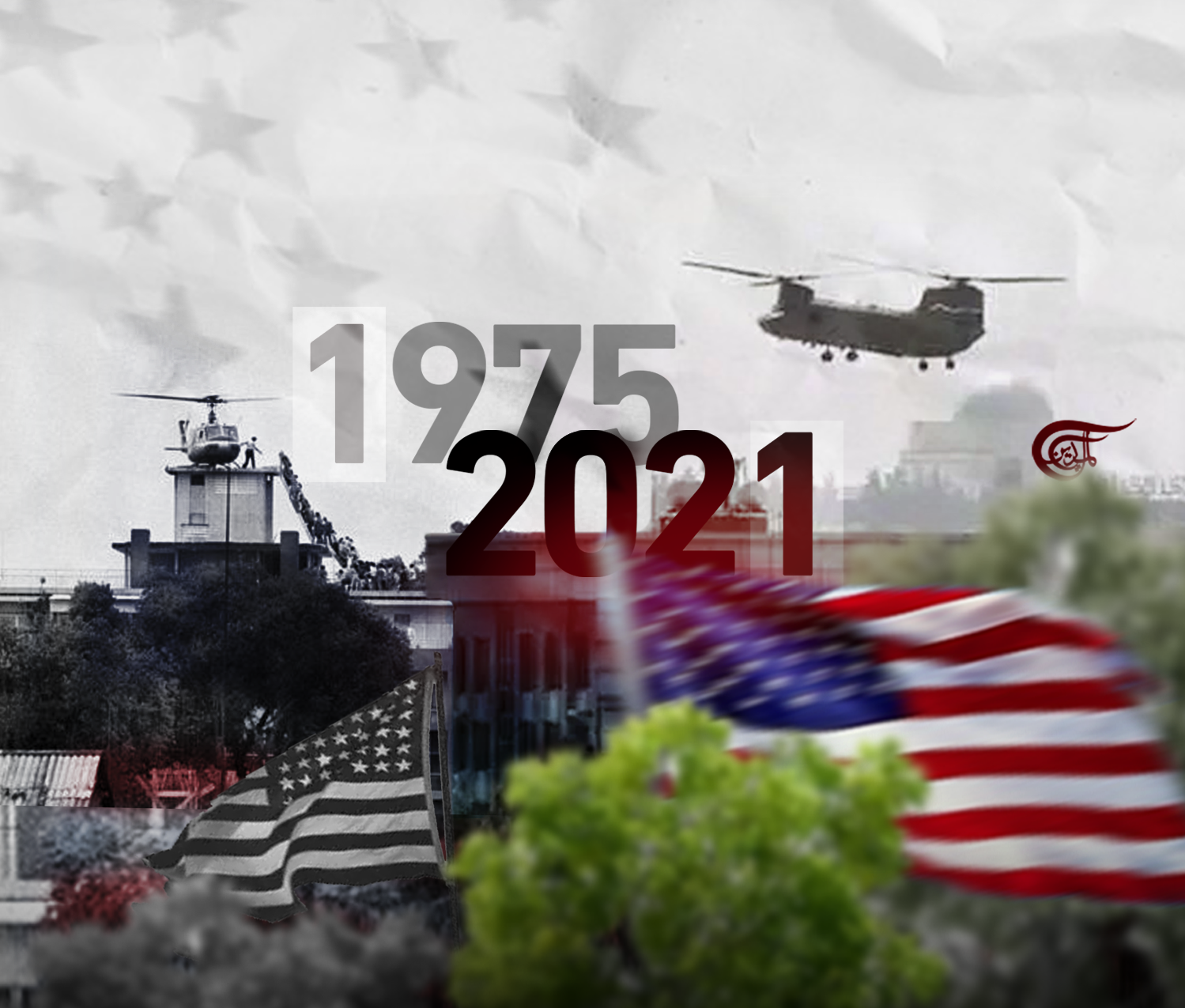In Vietnam He Was 19… In Afghanistan Too
The question here is if the US will be capable to heal this mental wound with more maturity than it demonstrated after fleeing Saigon.
The US’s embarrassing fiasco in Afghanistan reveals much more about the former than it does of the latter, as western propaganda deceivingly pretends in an orchestrated effort to cover up the mess. Although the issue is quickly vanishing from media headlines after an avalanche of breaking news from Kabul’s Airport, the truth is that the US and its western allies will not recover soon from such a big blow.
Just for starting, the Atlantic alliance built up around NATO after the Second World War is in shambles and a retrieve is not in sight. Even before the respective responsibilities in the Afghan debacle were properly allocated, the US made crystal clear it will not count on its European partners to face its arch-enemy China, with the exception, of course, of the UK. Only that can explain the AUKUS pact signed by Australia, the UK, and the US to confront China from now on. It means much more than a simple declaration of intentions; otherwise, France wouldn’t have recalled to Paris its ambassadors to Canberra and Washington. The US has chosen new allies as fast as it has dismissed the old ones.
In the Middle East that doesn’t fit the pretended “Greater Middle East” which Washington once dreamt of, things are also moving fast. After permitting the strangling of the Lebanese economy for almost two years in a desperate movement to have some leverage in Syria and the rest of the region, the US had no alternative except to endorse the gas and electricity agreement between Egypt, Jordan, Syria, and Lebanon. This demonstration of energy self-determination came just when Hezbollah was also breaking the oil blockade over Lebanon through the Syrian seaport of Banyas. There is no doubt that both audacious initiatives, plus the resume of regular flights between Jordan and Syria, will benefit the economy of Bilad al-Sham. It will also alleviate the human suffering provoked by unilateral sanctions contemplated in the US’s “Caesar Act” and the EU’s “Council Decision Against Syria”, both designed to punish the Syrian people because of their steadfastness and resistance vis-à-vis the long aggression to the Syrian nation.
Joe Biden’s soft speech –if not weak discourse at the UN General Assembly is another sign of this new insecure United States, whose deep soul is suffering after Afghanistan. The trauma could last longer than the one experienced after the equally shameful withdrawal from Vietnam half a century ago. The question here is if the US will be capable to heal this mental wound with more maturity than it demonstrated after fleeing Saigon.
Hundreds of books, films, songs, and other introspective works trying to understand the Vietnam failure have not been enough to help the country to come to terms with its historical trends, shaped by geography and above all by the will of its people. More than often that popular mandate has been disobeyed by the representatives of a rather frequently rhetorically overrated democracy.
The US people have always been isolationist. The mere idea of the US is isolationist, as professor Charles A. Kupchan underlines in his book Isolationism: A History of America's Efforts to Shield Itself from the World. It was sown by the first pilgrims/settlers arriving at what was called New England and New Amsterdam and whose influence can still be traced in the US profound psyche. Isolationism was also dear for the founding fathers of the new republic born after Independence. They were the ones that set the rule that staying apart from troubles abroad was the best way to build up the new state and a guarantee to sustain its freedom.
Until the first and second world wars, the US was attached to that principle. It’s true that with a second not so well-intentioned interpretation of the 1823 Monroe Doctrine (“America for the Americans”), since 1898, the US exercised a big influence in the Americas. However, the US dominion of the Western Hemisphere has always been far from the classical imperial type.
Promoting coup d’états, supporting presidents of their choice, pressuring through economic tools, dominating OAS and other institutions, or using in a totalitarian way the name America to designate what in reality is just one more country of the continent, is not exactly imperialism. Of course, all those could be illegal, immoral, rude, shameless, or counterproductive policies but are still far away from a direct ruling from the metropolis or by its appointed viceroys, always supported by permanent occupation armies, as the European empires or the Turkish one did. Through their current behavior, some of the modern states that succeeded those empires demonstrate that they are incapable to overcome their imperial past.
The US reluctantly but successfully participated in both world wars. It didn’t have any other option as it was provoked or directly attacked, like in Pearl Harbor in 1941. It exited from the First World War as a great power, while at the end of the Second World War it became a world superpower. After the fall of the Berlin Wall and the end of the Cold War, the US enjoyed for two long decades the condition of single hegemonic global power. That started to change when Russia recovered its traditional status and China made clear that it is much more than the world’s larger manufacturer. That means too many but also too rapid changes for US relations with the rest of the world.
Such a change of status has been difficult to digest by a nation-state that is barely 245 years old. A heavy burden and responsibility to be carried on by a people that since its birth dears to stay away from troubles abroad. All that happened while Europe outsourced its own security to the US and shamelessly attributed all its responsibility in common interest operations in the rest of the world to their master of convenience, in reality, their US servant. Undoubtedly such an unbalance and disingenuous transatlantic relation explains part of the world disorder, but not everything.
The disconnection between the US people’s profound wishes and the interests of the military and industrial establishment and its payroll politicians also help to understand Vietnam, Panama, Somalia, Iraq, Afghanistan, and other milestones of the US long list of failures. Those operations have left hundreds of thousands of victims, unstable regions, and an open wound in the US soul.
Paul Hardcastle’s song dealing with the Vietnam trauma stresses that “in World War II the average age of the combat soldier was twenty-six, in Vietnam he was nineteen”. It was not just the G.I. (Ground Infantry soldier) who was younger and thus less mature. The US society as a whole and its institutions were not prepared to fight and launch a war of choice that the deep US’s isolationist mentality simply did not understand. Almost five decades later, dealing with Afghanistan, the US is showing that it is still a confused teenager.
Time has come to aid the US people to get rid of the disastrous adventures undertook by their narcissist politicians who have dragged them in. However, if stubbornly they want to exercise their messianic "nation-building" accordingly to what the rest of the world has been seeing and suffering, they will have enough land to try. As a patriotic-folk US song reminder, the limits are established: “From California to the New York Island. From the Redwood Forest to the Gulf Stream waters.” But not a single inch beyond. Period.

 Pablo Sapag
Pablo Sapag
 7 Min Read
7 Min Read












